A professional range has hotter burners and better controls, making it seem like you'll be cooking like Cambridge's own Julia Child.
But that's not entirely true anymore (if it ever was).
For example, look at the Thermador all-gas Pro Harmony range and the Café double oven slide-in range.

The Thermador pro range has that heavy commercial look, marquee name, and pro-level output.
However, the Café range offers two ovens, self-cleaning functionality, better results, and costs less than the Thermador.
Whether you upgrade or not depends on a variety of factors.
In this article, you'll learn the pros and cons of upgrading to a professional range so you can make the right decision.
First, you need to know a common mistake in this decision.
Looking for answers about Pro Cooking?
Short on time? Download our free Pro Cooking Buying Guide.
What Is Not a Pro Range
You've probably seen or heard about these ranges that promise "professional" performance at a fraction of the price.
I saw an influencer gush over one in a video and was disappointed.
There are now tons of these "pro-style" range options.

They may look impressive, but they don't have the output of a true professional range on the cooktop or broiler.
Always check the specifications and reviews before buying a range, especially when it comes to service. Many foreign brands prioritize sales over support, so be cautious.
Now, for the advantage of pro-style ranges: they look good and are cheap.
Many builders and house flippers love them for that reason.
Then again, they aren't the ones using them.
Read More: Pro-Style vs. Professional Ranges
Should You Upgrade to a Professional Range? Pros, Cons, and Expert Tips
Now that we've covered what isn't a true pro range, let's dive into the pros and cons of upgrading to an actual professional range.
We'll start with the cons to give you the full picture.
Cons of Upgrading to a Professional Range
Con Number 1: Professional Range Burner Output
Burner output in high-end gas ranges has significantly increased over the years. My mom's old Caloric high-low range had a max output of about 8,000 BTU on the top burners.
When I started at Yale in 1986, GE introduced its gas range with a max output of 12,000 BTU burners. Viking changed the industry in the early 1990s by offering all 15,000 BTU burners.
Now, you can buy Hestan with a 30,000 BTU burner while BlueStar is the highest overall with multiple 25,000 BTU burners.
However, most regular gas ranges now have at least two high-output burners over 15,000 BTU, even this basic Whirlpool.
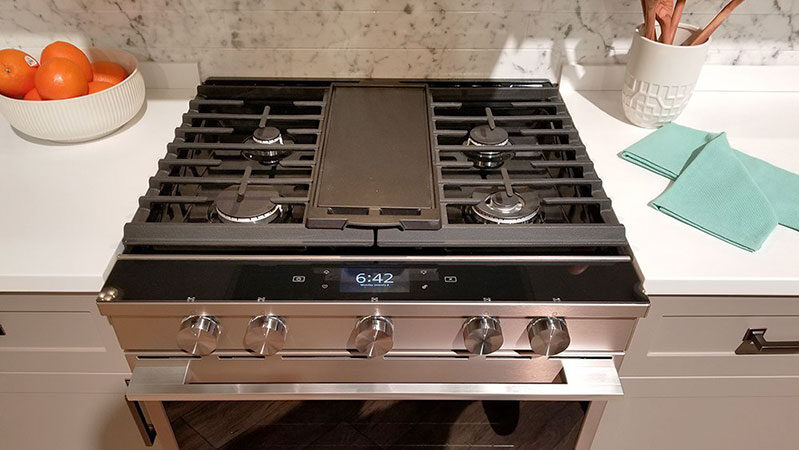
This LG slide-in offers two 20,000 BTU burners, which are hotter than many all-gas pro ranges like Thermador, Miele, and Wolf.
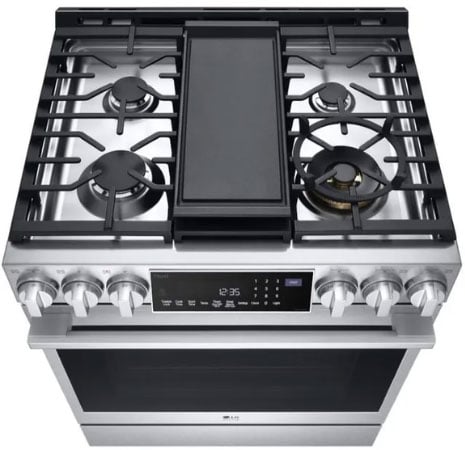
So, you don't need a pro range for power, mainly if you only use one or two burners.
Con Number 2: Professional Range Controls
Controls can be both a pro and a con, depending on the professional range you consider.
Many professional gas ranges do not have clocks or timers, just controls for modes and temperature.
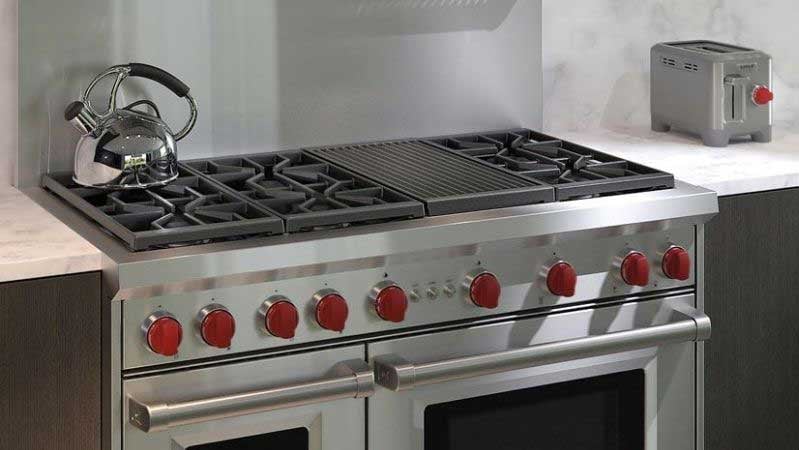
For example, the LG range has a clock, timer, and even an InstaView door, which you can tap a few times to darken or see through.
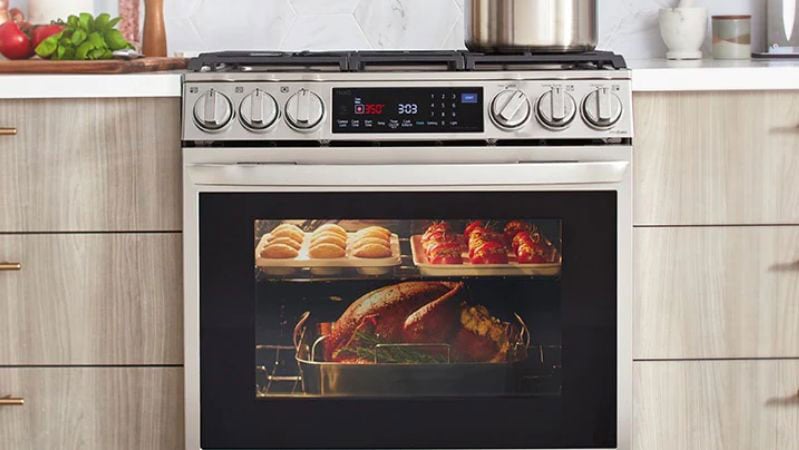
Additionally, almost all regular ranges have smart functionality, allowing you to turn your oven on remotely and set the temperature.
Some advanced features include a camera to see your food cooking through a phone app.
However, only some professional ranges offer these smart capabilities.
Con Number 3: Warming Drawers and Double Ovens
When I was in sales, I used to show people ranges with warming drawers.
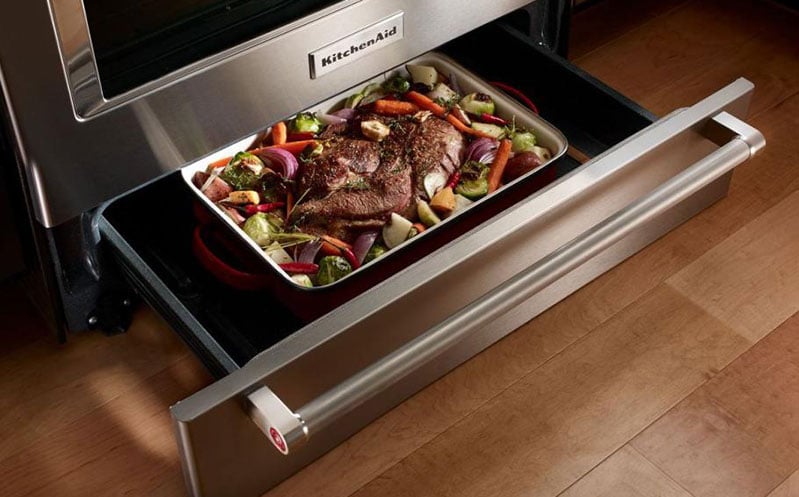
Warming drawers keep food warm for up to three hours without turning it to mush, allowing you to cook and serve anytime.
Individual warming drawers cost about $1,000-$2,000 but are incorporated in many gas slide-ins.

Café and KitchenAid also add a second oven instead of storage or warming drawers.

Many builders and house flippers love these features for their aesthetics and cost-effectiveness, but like we said earlier, they aren't the ones using them.
Con Number 4: Induction vs. Dual Fuel in Professional Ranges
Many people subconsciously buy the dual fuel pro for gas speed and an electric oven for baking.
Manufacturers like Wolf, Miele, Thermador, and BlueStar offer better features in their dual fuel ranges versus their regular all-gas ranges at a higher cost.
All gas ranges are better for roasting with their heavier, moisture-heated heat and for broiling.
However, induction cooking is superior to any pro gas cooktop, and you have the same electric oven.
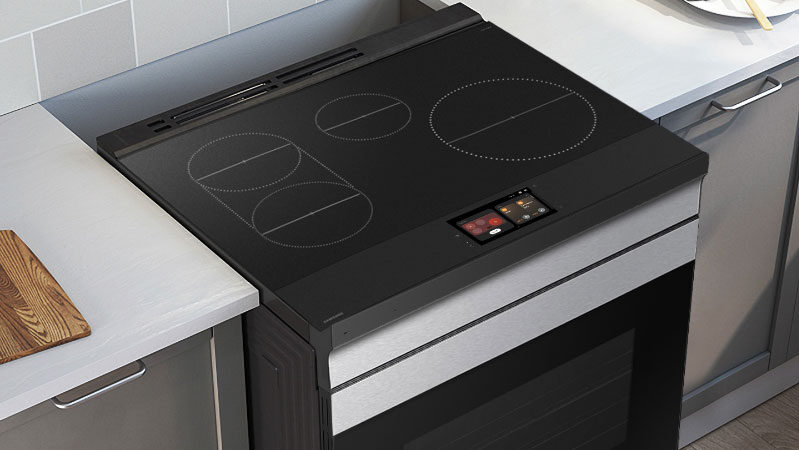
Induction cooking uses magnetic fields to generate heat. The magnets in the burners excite the metal molecules in the pan, cooking the food directly without heating the glass surface.

Induction is faster than any pro gas cooktop, even the 30,000 BTU Hestan burner.
You have infinite control of an induction burner. With a gas burner, the flame will extinguish at lower levels.
The top doesn't get hot, so food doesn't become encrusted to the surface. You just wipe it off.
The burner needs to sense metal to turn on. Your child can't just turn a knob like with electric or gas.
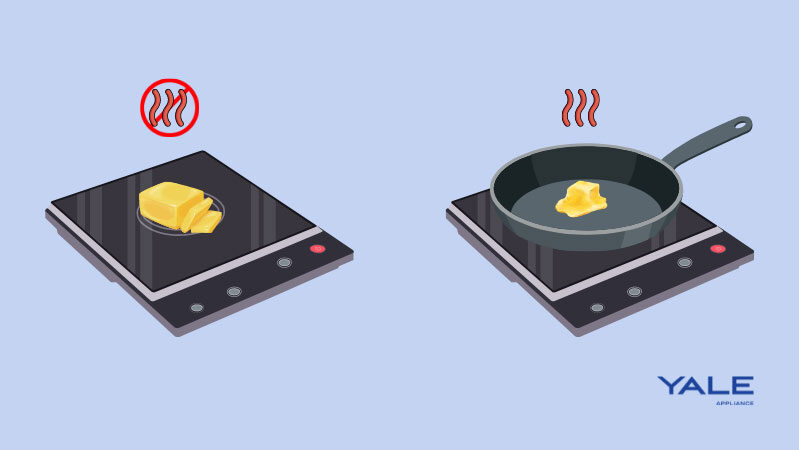
There's less chance of burns from a hot surface because the top is only hot from the pan to the glass. Induction is more efficient, so you have less heat to vent.
You can also buy professional induction ranges in the regular 30-inch size and 36- and 48-inch sizes.
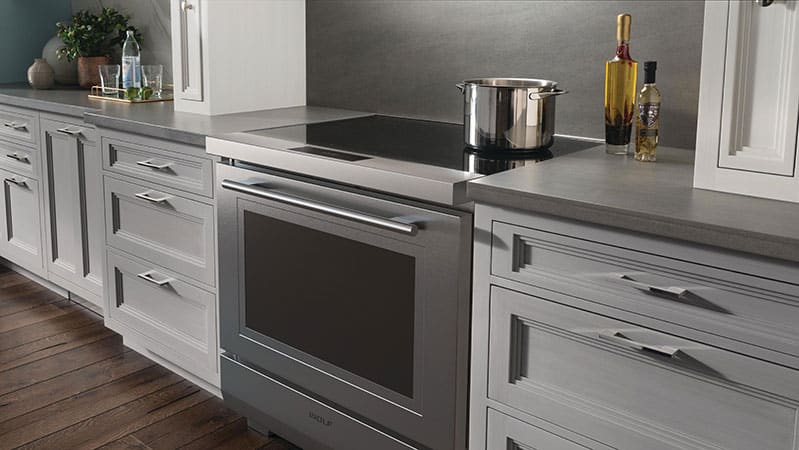
The Wolf and Miele induction ranges offer the same functionality as their dual fuel pros with better convection and steam functionality.
More induction models will also be available because many states, including Massachusetts, have banned gas ranges in multi-unit buildings.
Con Number 5: Price of Professional Ranges
Price is often a major consideration.
The Café range we mentioned earlier is almost $3,799 while the Thermador is $4,949 with a free dishwasher.
That dishwasher is worth about $750, making the price about the same. However, the average slide-in gas range costs about $3,000, while the average pro all-gas range is $6,000.
For dual fuel, that number increases to about $7,000-$8,000.
Now that we've covered the cons of upgrading to a professional range, let's dive into the benefits that make these high-end appliances worth considering.
Pros of Upgrading to a Professional Range
Pro Number 1: Enhanced Resale Value with a Professional Range
Before you look at features, a pro range looks better than a gas slide-in and is better for resale.
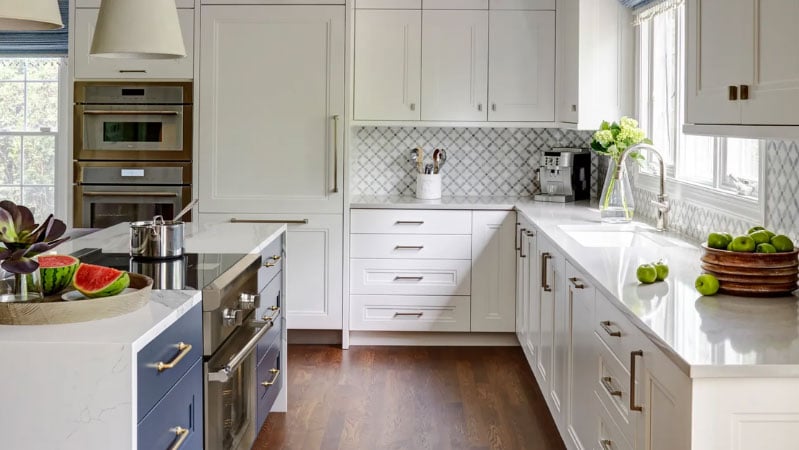
Homes advertised on Zillow often mention brands like Sub-Zero, Wolf, Miele, and Thermador, while other features of the house usually aren't highlighted.
It shouldn't be that way.
People recognize names like Sub-Zero, Wolf, Miele, and SKS more than they do the best shingles and basement waterproofing companies.
Maybe I know more about roofing because I had to replace a roof once due to defective shingles.
Your cooking style is unique. Shouldn't your range be too?
Pro Number 2: Intuitive Controls on Professional Ranges
You learned that controls on an all-gas pro are often nonexistent.
However, the controls on dual fuel ranges like those from Wolf, Miele, and SKS are incredibly intuitive and will improve your cooking.

After you input the food and how you want it cooked in a Wolf, Miele, or SKS dual-fuel oven, the oven will calculate the time and temperature.

The Wolf will even calculate the rack position.
Pro Number 3: Steam Functionality in Professional Ranges
.jpg?width=799&height=449&name=Thermador-Professional-Range-With-Steam-Oven%20(1).jpg)
Professional ranges offer steam functionality in two ways:
- Steam Assist Feature: This allows you to add moisture during cooking to retain flavor. Since electric heat can be dry, adding moisture is beneficial. Miele, for example, includes steam assist functionality in their higher-end dual fuel ranges.
- Full Steam Ovens: Brands like SKS and Thermador offer full steam ovens in their larger professional ranges. Cooking with steam is one of the healthiest and most delicious methods of preparing food.
Pro Number 4: Professional Ranges with Grills and Griddles
Back to the Café range with six burners.
It has two 9,500 BTU burners with a griddle accessory. You have plenty of power, but it's not thermostatically controlled like a professional range.
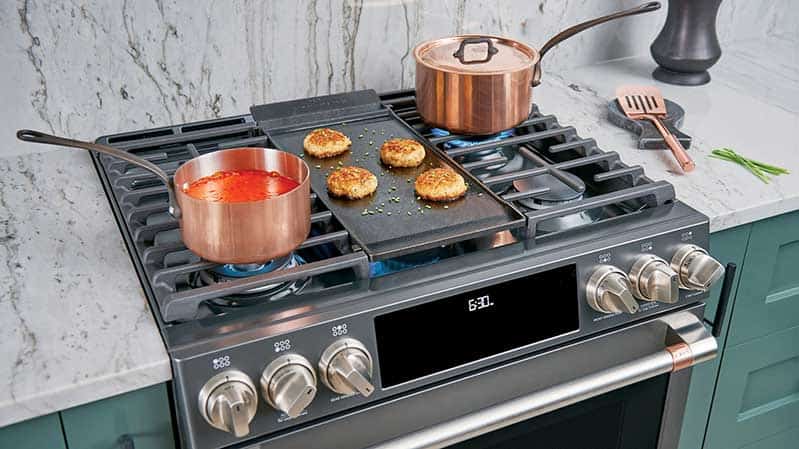
Those morning pancakes will be more uniform and easier to make with a pro range.
Grills
You can grill extremely well on a pro range, especially the directed infrared types.

Its burner is the same as the sear burner of Lynx and Hestan grills.
Pro tip: You need to vent properly with a high-powered hood of a minimum of 900-1500 CFM.
Pro Number 5: Variety of Options with Professional Ranges
A 30-inch range is similar in pro and regular slide-in types.
Yet you have far more options and models in pro ranges, larger sizes, and not just grills, griddles, and steam.
Thermador offers induction in their 36, 48, and 60-inch models.
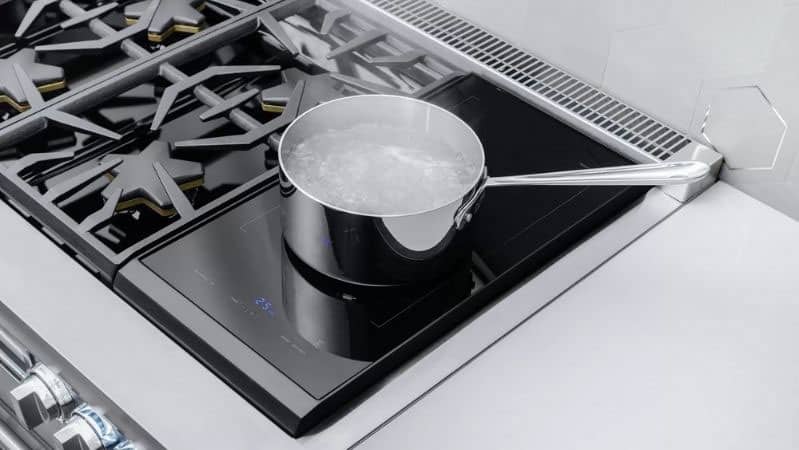
SKS offers sous vide or precision boiling in a vacuum-sealed bag.
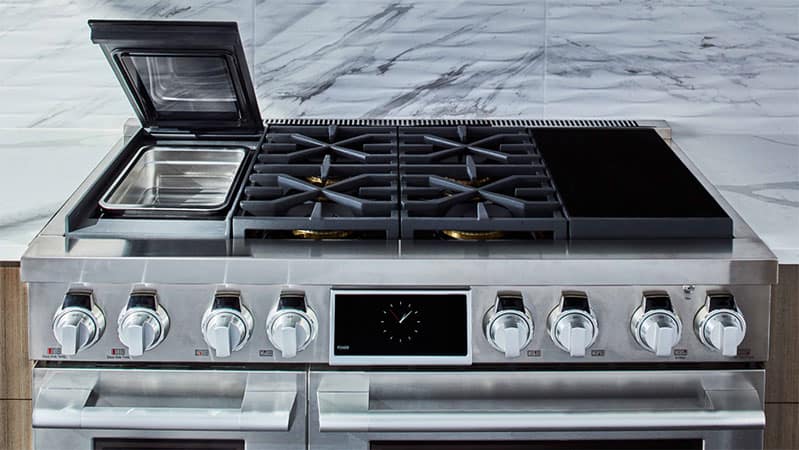
BlueStar French tops, available in 48- and 60-inch ranges, allow you to cook many different foods at different temperatures.

Pro Number 6: Color Options for Professional Ranges
Back in the early 1990s, stainless steel became popular. Now, you can't get away from it.
Sure, Café offers three colors and six handle styles.

Fisher & Paykel offers three, while Samsung will give you four colors (two you shouldn't ever consider) and limitless options on their fridge.
For professional ranges, BlueStar offers 1,000 colors and ten trims and will even customize a color with a sample.
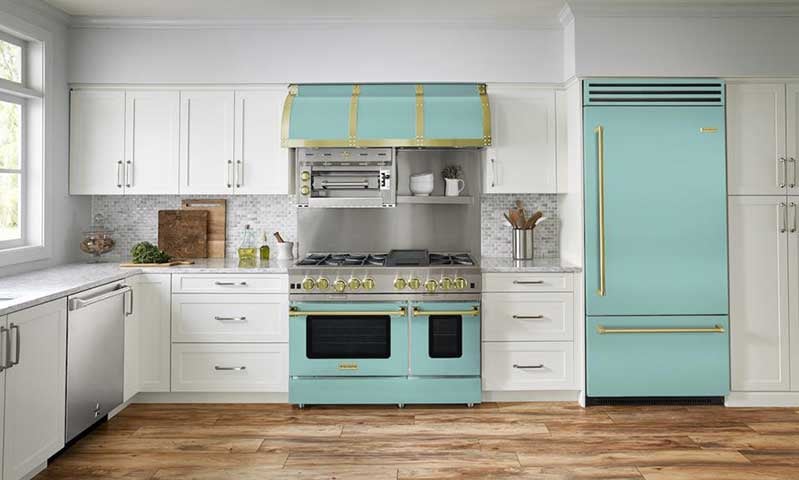
La Cornue offers 50-plus, and you can customize theirs as well.

Viking offers 17 colors based on Sherwin-Williams paint colors.
Even the venerable Wolf now offers black and white in addition to stainless.

Pro Number 7: Superior Broiling with Professional Ranges
My mom used to broil everything. Seriously, you name it, she broiled it.
Her underpowered Caloric range had one advantage: the UltraRay broiler.
Caloric was once owned by Raytheon and was the first with the infrared broiler.
But all gas pros are way better than any range—induction, dual fuel, or electric—in that feature.
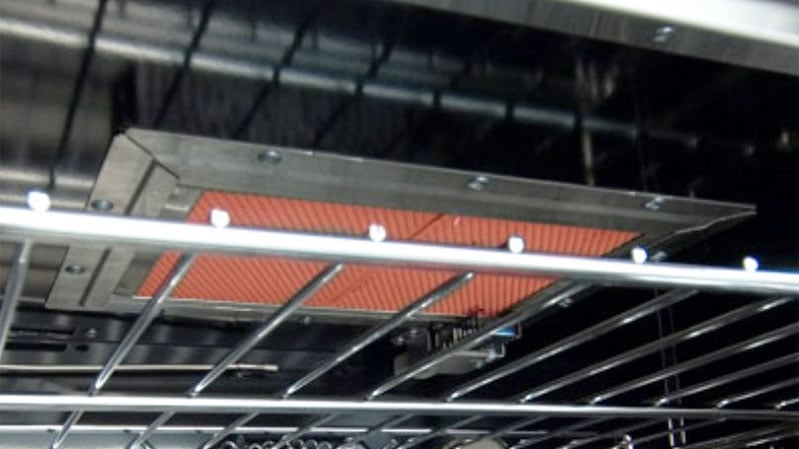
Before you click away, know that the Miele 23,000 BTU infrared broiler is the same as the sear element in a $10,000 Lynx grill.
The same BTU with the same directed heat is better for searing.
Should You Upgrade to a Professional Range?
You have a lot to consider.
The goal of this article is not to confuse you, but to clarify your options.
Now you know what a professional range isn't. You also know that regular ranges have pro-type burners, so you don't need a pro range if you only use one or two burners.
Induction ranges should also be considered, as they offer a wide variety of options.
However, professional ranges come with many more features and can enhance your home's appeal to potential buyers.
Ultimately, it all depends on you, how you cook, the size of the range you need, and whether you'll be staying in your home or selling it soon.
Additional Resources
Imagine your perfect kitchen - now make it a reality. Our free Pro Cooking Buying Guide helps you choose the right grilling, steaming, or baking tools. Download today and see why over 1 million readers trust us to guide their purchases!
Related Articles:


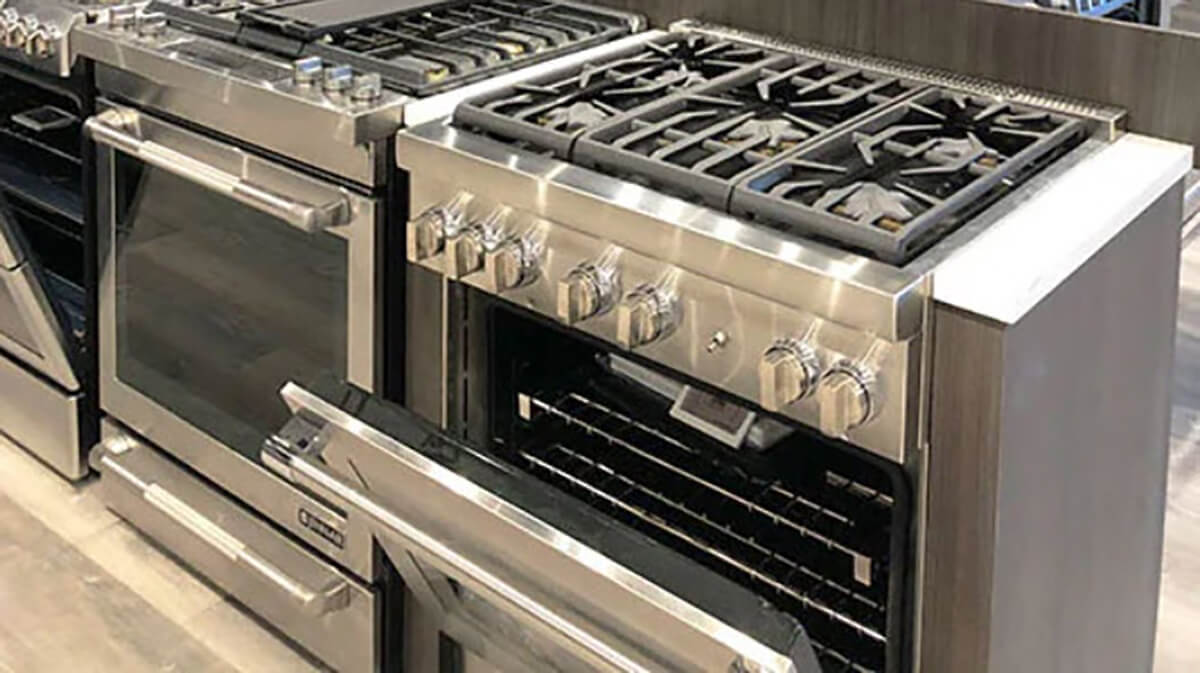



















.jpg?width=799&height=449&name=Thermador-Professional-Range-With-Steam-Oven%20(1).jpg)









